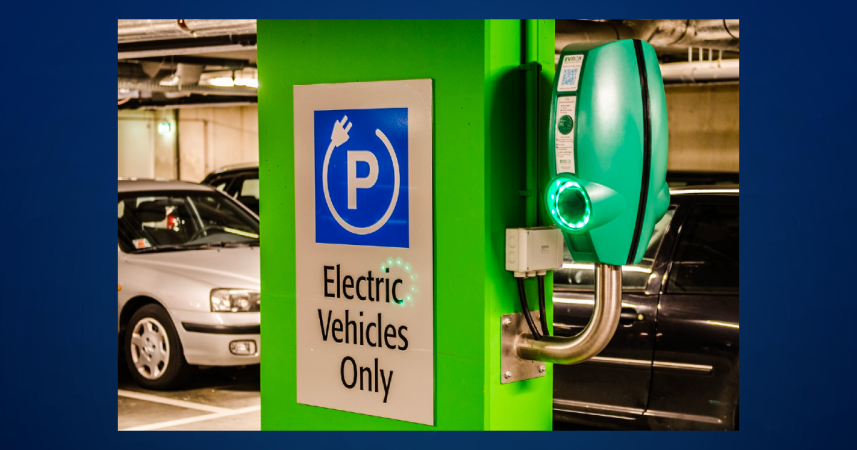For the third year in a row, Democrats in the Virginia Senate have shot down an effort to divorce Virginia’s auto dealers from California’s impending mandates on electric vehicle sales. But before the predetermined vote went down, the new chair of the committee made a surprise announcement that he and his colleagues are open to revisiting Virginia’s legal rush to end fossil fuels.
Senator David Marsden, D-Fairfax, said he and Senator Creigh Deeds, D-Charlottesville, have discussed using the period between the 2024 and 2025 General Assembly sessions to convene a conference on the 2020 Virginia Clean Economy Act (VCEA) and the many other statutes they passed to suppress coal, oil and natural gas use. Republicans later shared his musings on X.
Marsden is the new chair of the Senate Agriculture, Conservation, and Natural Resources Committee and Deeds chairs the Commerce and Labor Committee. The Virginia Mercury noted his comments at the tail end of its report on the meeting, but it was the only actual news to break out that afternoon. The Richmond Times-Dispatch failed to mention Marsden’s announcement but had a nice photo of a half-empty Tesla charging lot in California.
Truth would have been better served by a photo of the stranded EVs waiting for crowded, failing chargers in frigid climes this week. There is a reason consumers have not been rushing to buy EVs at the expected rates. Despite the happy talk from mandate proponents, the targets are pie in the sky. The only winner in this whole process is Tesla, getting rich by selling carbon credits under the cap-and-trade element of the California regime.
The various net-zero policy bills passed when Democrats had total control of state government under former Governor Ralph Northam (D). The wind and solar energy mandates in the VCEA are already adding to electricity costs for both major Virginia electric utilities, but the hard deadlines for closing all fossil fuel generating plants are still decades away. The impact of a mandatory percentage of new car sales being EVs begins with the 2025 model year.
Deeds and Marsden are both Democrats, but their consensus must be seen as “bipartisan” in one way. Marsden receives most of his political money from Dominion Energy Virginia, a utility openly trying to hold onto at least some natural gas generation for challenging weather weeks like this one. Deeds, on the other hand, shows the strident environmental group Clean Virginia as his largest recent donor, with no major check from Dominion on his list. Both mega players will have a leader in their corner.
As to who will be in the average energy consumers’ corner, the list of stakeholders Deeds and Marsden will invite to the meetings is still to come. During the hearing on January 16 on the failed legislation to break from the California regulatory regime, at least some citizens not with a lobbying group spoke in favor of the bill on behalf of people who might not want an EV for some reason, not least the higher cost.
Senate Bill 3 and two related measures were combined into a single bill and then defeated 8-6. Senate Republicans and Governor Glenn Youngkin (R) had shown a spotlight on the issue before the meeting and decried the outcome afterward. It would have been more effective if the issue had received more heat and light during the 2023 election campaigns, but it didn’t.
The American Fuel and Petrochemical Manufacturing Association was one of the groups that did send a lobbyist to the meeting in support of the repeal bill. Late last year, it had Mason-Dixon Polling & Strategy add some questions to a survey. Three years after the Assembly adopted this, it found almost half (48%) of respondents were still unaware that Virginia dealers are under a mandate to reach target percentages of EV sales, eventually eliminating gasoline engines from their new car lots.
Virginia is one of about a dozen states following the rules of the California Air Resources Board on vehicle sales, mostly on the West Coast or in the Northeast. The 2021 legislation ordered Virginia’s Air Pollution Control Board to join the group, and if (and more realistically, when) the CARB amends California’s rules the default position is Virginia will follow along.
Supporters of repeal styled that as Virginia surrendering its sovereignty to another state, but backers of the mandate pointed out that complying with the Environmental Protection Agency is the only other choice. Virginia cannot devise its own rules. What the supporters of repeal failed to point out is that Virginians get to vote for EPA’s bosses but have no votes on California’s leaders, so sovereignty is an issue.
EPA is moving toward similar emissions mandates that will narrow the regulatory gap between the California-led coalition and the rest of the United States. The 2024 national election will probably decide the fate of that. A year from now this could be moot.
Democrats pointed out Tuesday that passage of the initial bill in 2021 was requested and endorsed by Virginia’s auto dealers, significant political donors themselves ($1.25 million in the past cycle.) To underline that Tuesday, the group’s president issued a statement in support of the majority’s vote. His quote, used by Virginia Mercury in the link above, illustrates that they understand only the heavy hand of government can make this happen. The free market never will.
“Mass adoption of EVs, however, requires government policies that are technologically achievable, maintain affordability, and complement the efforts of the private sector in advancing the vehicle fleet turnover needed to achieve the targeted environmental benefits within a timeframe that helps, not hurts, new vehicle buyers,” it quoted President Don Hall.
Virginia law already allows the state to provide grants to customers in support of EV sales in the state. Expect a budget amendment soon to provide the millions of dollars in funding to make that reality. Expect the auto dealers to be at the podium in support.

Steve Haner is a Senior Fellow for Environment and Energy Policy. He can be reached at Steve@thomasjeffersoninst.org.






